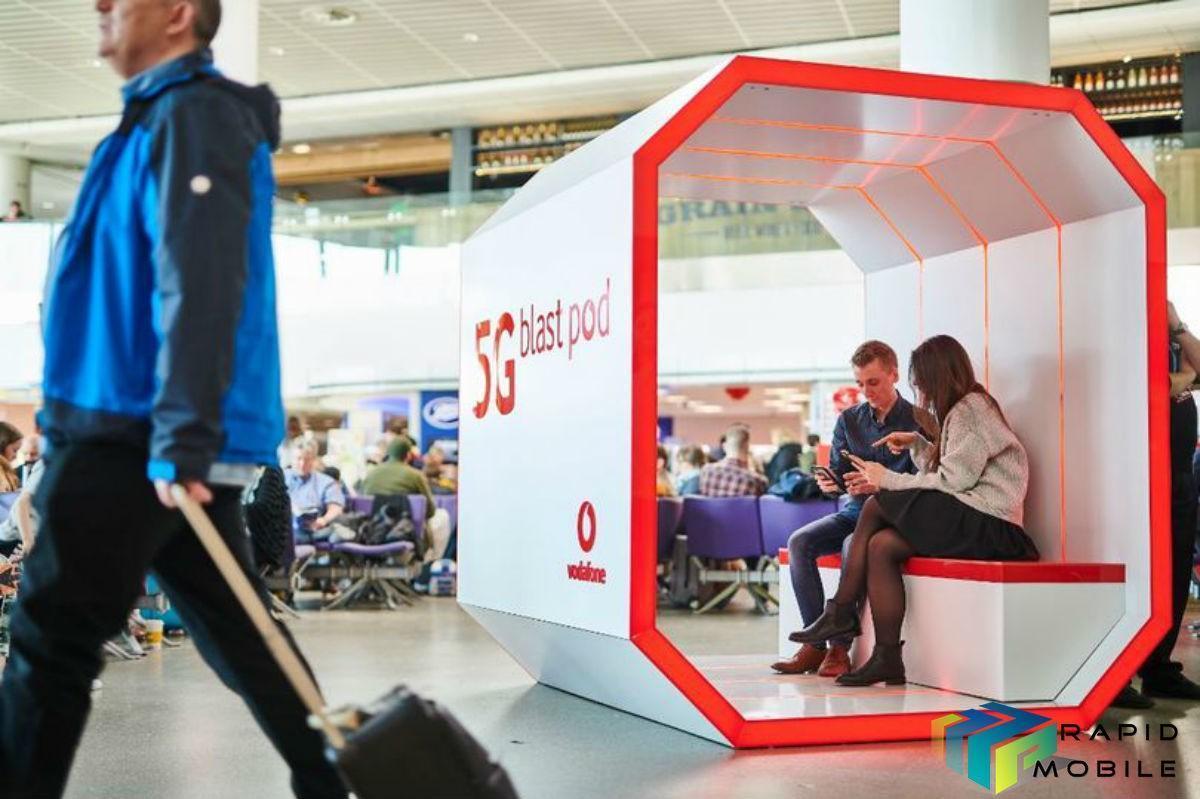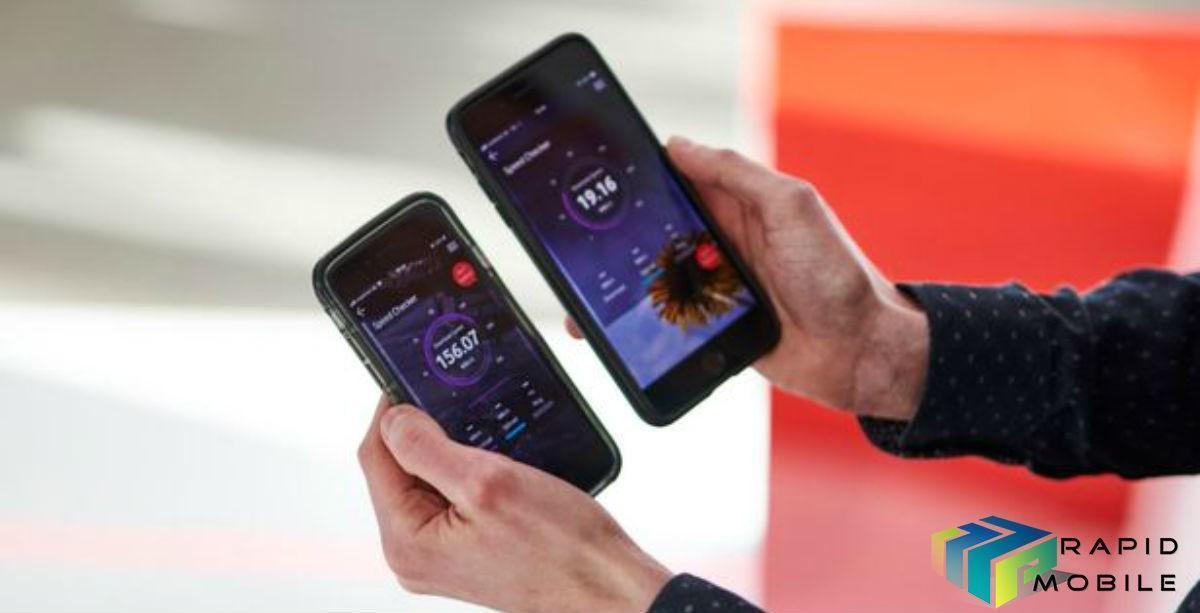 Vodafone has switched on 5G at Manchester Airport, becoming the UK’s first 5G connected airport. The company switched on 5G at Manchester Airport as part of an ongoing trial – with other locations set to follow suit within weeks.
Vodafone has switched on 5G at Manchester Airport, becoming the UK’s first 5G connected airport. The company switched on 5G at Manchester Airport as part of an ongoing trial – with other locations set to follow suit within weeks.
The airport is the first of several travel hotspots where Vodafone is testing 5G. Vodafone 5G masts are now in place at the airport as part of 5G trials being conducted in the city. Vodafone will expand the 5G trials over the coming weeks to airports and train stations in Birmingham, Bristol, Cardiff, Glasgow, Liverpool and London, with more planned for Manchester.
Birmingham Snow Hill train station will be the next location to receive the trials and is due to be available over the coming weeks.
Travellers at Manchester Airport’s Terminal One have tested the new superfast network by downloading a film or TV box set using 5G. They visited the Vodafone 5G ‘blast pod’ to receive a free Entertainment Pass on the NOW TV streaming service.
As 5G handsets are not yet available to consumers, the trial was completed using the Vodafone Gigacube device, a 5G-enabled portable router.
 Brad Miller, chief operating officer, Manchester Airport said:
Brad Miller, chief operating officer, Manchester Airport said:
“We are delighted to support Vodafone’s 5G trial at Manchester Airport.
“As we progress with the design and delivery of our £1bn transformation programme, we are constantly exploring how new innovations and technology can be applied to improve the airport experience.
“As a business with a strong presence in our surrounding community, Vodafone was a natural partner for a trial project like this and we look forward to collaborating with them again in the future.”
Nick Jeffery, CEO, Vodafone UK added:
“We are proud to be the first provider to bring 5G to an airport and will be adding more major travel hotspots to our 5G network throughout the year.”
With faster speeds, low latency and increased capacity, many believe that 5G has the potential to revolutionise day-to-day life by enabling smart airports and roads, as well as better connected cars, businesses and homes.
It will act as a catalyst for emerging technologies such as artificial intelligence, Internet of Things (IoT), robotics and connected cities.


